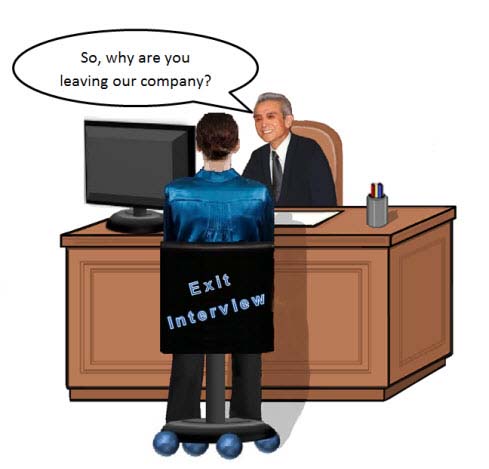Job interviews are essential to making a sound hiring decision. They supply firsthand information about the candidate’s background, work experience and skill level; a general sense of the candidate’s overall intelligence, aptitude, enthusiasm and attitudes; and an idea of how those attributes match up to the requirements of the job. They offer insight into the candidate’s basic personality traits, her motivation to tackle the responsibilities of the job, her desire to become a part of the company and her ability to integrate into the current work team.

After you have narrowed the candidate pool based on your evaluation of the resumes you’ve received, and possibly a round of phone interviewing, it is time to conduct in-person interviews — and you want to make sure your interview is time well spent. These articles can help you prepare for the interviewing process and avoid common interviewing mistakes.
Interviewing basics
How to Conduct a Job Interview: Although interviewing is a relatively common task for virtually every business, it should not be taken lightly. Learn how to structure your interviewing process so it is as effective as possible.
The Interview Process Protocol: Tips for Employers: Learn how to create a system for interviews so you can make the best hire for your business. A methodical approach includes thoughtful planning about who will conduct the interview, preparing by reviewing the applicant’s materials, carefully crafting a list of questions and more.
7 Telephone Interview Tips Any Manager Can Use: Dialing up candidates to ask some initial questions can further narrow down your list. But since talking on the phone is very different than meeting in person, you may need some telephone interview tips to follow when calling your top job candidates.
10 Job Interview Tips for First-Time Managers: Job interviews are stressful for both the candidate and the manager conducting the interview. Here are some tips to help those who are new to the interviewing process put their best foot forward and find the right candidate for the job.
Make every interview question count
The Q&A is the main part of the interview. How you phrase questions, when you ask them, how you follow up — each of these aspects of interviewing can go a long way toward affecting the quality and value of the answers you get.
Job Interview Questions: 4 Types to Consider: There are so many different questions you could ask when interviewing a job candidate, how do you know which ones are most effective? Learn about the many types of questions, when to use certain interviewing questions and pitfalls to avoid.
5 Interview Questions That Can Help You Make Better Hires: Find the top five interviewing questions to ask a job seeker and advice on interpreting the answers.
10 Interview Questions to Help You Find Your Next Great Hire: Every question you ask during a job interview must have a specific purpose. That purpose may be to elicit specific information, produce some insight into the candidate’s personality, past performance or simply put the candidate at ease. Here are 10 top interview questions to really get to know a candidate.
Oddball Interview Questions: Do Off-the-Wall Inquiries Help?: They sure do. While some are amusing, it can be worthwhile to include off-the-wall interview questions in a job interview. They can help you uncover specific insights that more standard questions may not reveal.
Interviewing pitfalls and pointers
This section takes a look at some of the all-too-common practices that create a surefire recipe for hiring mistakes. We delve into the importance of devoting adequate time to the interviewing process, of adhering to a consistent method and capitalizing on your active listening skills — and the harm in ignoring best practices.
Interviewing Mistakes to Avoid When Hiring: It’s easy to get sidetracked by a variety of factors during the interviewing process. Discover the largest pitfalls for interviewers and how to avoid them.
Bad Interview, Good Hire?: Not every job candidate is fabulous at the interview game. Learn how to evaluate hard-to-interview personalities so you can accurately evaluate each person’s potential.
Interviewing Job Candidates? Avoid These 5 Deadly Sins: The job interview is one of the best ways for evaluating whether a candidate will fit in at your organization and whether he has the skills necessary to succeed. Don’t make these five mistakes when conducting interviews.
Putting a polish on your interviewing process
With only a few minutes to go, you can bring the interviewing session to a graceful close by offering the candidate a broad-brushstroke summary of the interview, providing the candidate time to ask questions, letting her know what comes next, and ending the interview on a formal but sincere note. Read on for tips about refining your interviewing process.
How to Close an Interview with a Job Candidate: Discover the right way to end an interview so the candidate leaves with a positive impression of your firm, and you can evaluate his or her performance.
Conducting Interviews That Go Somewhere: Tips for Making a Good Hire: The interviewing process is an art that develops with practice. It begins, before the interview, by having a strong job description. A good interviewer will vary the style of questions she asks. She’s also able to read and put candidates at ease.
How Panel Interviews Can Streamline Your Hiring: Read about the most effective methods for carrying out panel interviews and when you might want to use them as part of your interviewing process.

 Follow
Follow